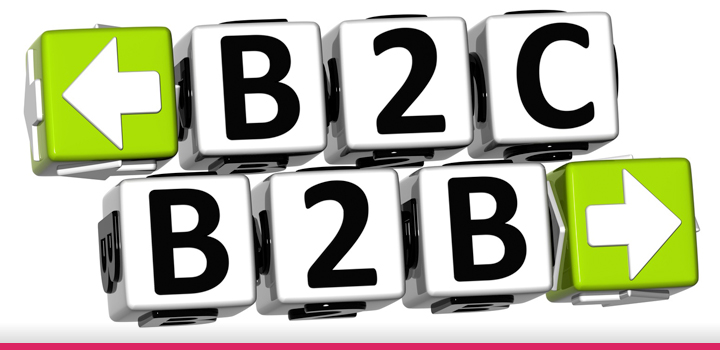
Regardless of which audience we are communicating to, the basic principles of marketing are very similar. At the end of the day, we are communicating with people.
This post will explore the difference between B2B & B2C marketing. There is a significant difference between the B2B and the B2C sectors. The complexity of the decision-making environment in the business context as opposed to the domestic one.
Essentially B2B purchasing takes place within the context of a formal organisation, whereas consumer purchasing behaviour is either purely individualistic or takes place in extremely small and informal groups such as families and couples. This fundamental difference has a great effect on:
* What you say
* How you say it
* What data you will need
A good example of the extremes between B2C and B2B, would be the marketing of a fragrance as opposed to a 3D printer. On one hand cosmetics are a fashion item, based around self-expression - you either like or dislike the fragrance. It is highly unlikely that any information of a factual nature will change a decision to purchase or not, and price might not even be a factor − as it was once commented ‘perfumes are dreams in a bottle’.
Hence, much marketing of fragrance is based on imagery, lifestyle and brand, rather than the technical specification of the content of the bottle. At the other end of the spectrum we have a 3D printer. In contrast to perfume, prospects here are very much interested in the technical specifications of the product, i.e. the machine’s productivity, features, functionality, efficiency and reliability. Typically, the prospect here is looking for a trade-off between price and the maximum benefits available to his or her organisation. We do not have to look at all B2B purchases in such factual terms but this example serves to prove the point.
Of course some B2B products do have a ‘fashion’ element, such as smartphones, laptops or furniture. Even so, if you are selling to a medium or large business, they are bound to have a minimum set of requirements for all of these purchases. This detailed presentation of product features is counter-intuitive to the conventional marketing wisdom of presenting benefits not features.
The point is however, that in B2B marketing, customers are rarely impressed by isolated statements of benefit - they also want a technical explanation and proof of the benefits. So what is the difference between B2B & B2C marketing? As B2B marketers we must remember that this is because customers will be accountable for their decisions. They either need to justify these decisions and the results of the decisions to superiors or subordinates. For most B2B purchases of any significance, there will be more than one person involved in the decision making process and depending on the organisation, there may even be a formalised decision making process in place to reduce the potential of influence from marketing messages.
We must remember that the smaller the B2B organisation, the more likely the decision making process will be similar to a consumer decision making process. In the same way, the larger or more complex a consumer purchase becomes, the closer its decision making process will resemble the B2B decision making process.
In all marketing, understanding your buyer's journey is critical. Even more important is using this buying journey to map your marketing activities and messages. Getting this right will significantly increase the context and effectiveness of your marketing message. Especially in B2B marketing where the decision making process can be drawn out over months, with a number of parties to influence.
To sum up, what we say in in B2B often needs to be more detailed in nature, with an explanation and justification of prices. At the same time we must always remember that we are marketing to people, and need to identify and promote the ‘dream’ as well as the ‘content’ in the bottle.


